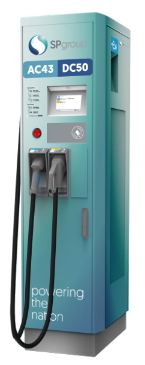Singapore has long been a public transport-friendly state, but it has lagged some other places when it comes to electric vehicles. But now, its taxi fleet is making the running and compensating for a slow start. By Jeremy Torr.
Singapore. 22 February 2019. In 2016, the Transport Authority (LTA) in Singapore was sufficiently confused by electric vehicles (EVs) and their emissions status that it billed the first Tesla owner on the island $15,000 - as a carbon surcharge. This helped ensure only 12 EVs on the nation’s roads as late as end 2016.
Since then the rules have been straightened considerably and the trickle of EVs has become a noticeable rush. Last year one of the biggest of a large fleet of taxi operators, ComfortDelgro, added 200 new taxis to its fleet; a considerable investment. But better still, it opted for Hyundai Ioniq Hybrids. And it says its next step is to go all-electric, with an ongoing trial of Hyundai Kona Electric taxis for the last few months. Already it is seeing advantages, despite the paucity of charging stations o date.
“The cost of a full charge (for the Konas) is one-third that of an equivalent amount of diesel,” noted the company. CEO Ang Wei Neng said the new taxis were "practical, friendly and provide substantial savings in fuel cost,” but the company is still assessing the use of all-electric taxis with respect to recharge costs, charging frequency, maintenance and mileage as well as battery durability, according to Corp Comms Manager Tammy Tan.
Grab Taxi’s smart app has propelled it to position of leader in ride sharing. Courtesy Grab.
Newcomer to the taxi scene in Singapore, Grab Taxi, is also pushing for a serious move away from gas-guzzlers on the Republic’s roads. Grab, which has become a potent force for connected users through its Grab app for smartphones, is to introduce 200 BYD e6 taxis over the next years.
Building on the success of an earlier 30 vehicle pilot launch by operating company HDT, Grab and HDT are looking to a rapid rollout for more new vehicles. HDT has plans to expand its all-electric fleet to at least 800 vehicles over coming years.
“This is only the beginning, as there will be more BYD products and services for Singaporeans in the future,” said Liu Xueliang, Asia Pacific GM at BYD Sales. As a further boost, the local power company Singapore Power (SP) is to offer taxi drivers preferential charging rates at their charging stations. The company claims that not only will emissions in the city drop as a result of the new fleet, but that drivers can expect to earn up to 25% more a day compared to drivers who have to fill up with petrol or diesel.
BYD’s Liu Xueliang says this is only the start for EVs in Singapore. Courtesy BYD.
As part of the incentive to swap to EVs, SP has committed to install 1000 public access charging points, for EVs, using both DC (direct current) and AC (alternating current) within the next 12 months. Better still for the taxi uncles who love taking tea breaks, the company plans to site them “within close-proximity to coffee-shops and food outlets.” What an incentive! SP also noted that the new fleets should help Singapore to an EV tipping point and “accelerate the wider adoption of EVs in Singapore and support the nation’s efforts to reduce our carbon footprint.”
“We have heard from our driver-partners that a faster charge time and longer EV driving range are important considerations,” said Lim Kell Jay, Head of Grab Singapore. “So we are in a unique position to help drive a cleaner, greener Singapore by encouraging more of our drivers to adopt EVs,” he added.
As a result, Grab has become the largest electric and hybrid vehicle fleet operator in Southeast Asia.
SP is to install 1,000 EV recharge points by 2020. Courtesy SP.
The BYD cars have a claimed range of up to 400km per charge, and using the SP fast-charge stations should only take some 40 minutes to give a full day’s worth of driving charge.
But while the Singaporean taxi world is setting some records in the region for EV adoption, private owners have no such grand plans. Despite UK electronic pioneer Dyson announcing it will build electric cars in Singapore within a year or so, not the UK, Singapore’s private buyers appear unimpressed with electric propulsion.
In 2018, almost 615,000 private cars were registered in Singapore. Some 93% of those were petrol vehicles, with the remainder mostly petrol-electric hybrids. A pathetic 466 (0.08%) were true EVs.
Which makes the taxi companies’ vision seems even bolder – but then again the people who take taxis may not be taking into account the ‘kiasu’ element of a shiny, powerful machine that roars. (kiasu is local slang for ‘front of the queue’ – a particularly important status in Singapore).



